Song of the week: Täuschung (F. Schubert) - J. Kaufmann, H. Deutsch
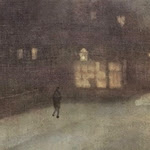 For some weeks now, I have been listening to Winterreise in an intense and intensive way, because, within ten days, I have found three CD in my letterbox: two of them recently released, those of Jonas Kaufmann and Helmut Deutsch and Gerald Finley and Julius Drake, and one released two years ago, by Florian Boesch and Malcolm Martineau. It would be just natural to think that this post results from a possible overdose but it's not, it was scheduled on my blog's notebook a year ago, when the Gran Teatre del Liceu presented the 2012-2013 season. Because on 28th March, if everything goes to plan, Jonas Kaufmann and Helmut Deutsch will be performing Winterreise in Barcelona (it's not a coincidence, they are doing a tour).
For some weeks now, I have been listening to Winterreise in an intense and intensive way, because, within ten days, I have found three CD in my letterbox: two of them recently released, those of Jonas Kaufmann and Helmut Deutsch and Gerald Finley and Julius Drake, and one released two years ago, by Florian Boesch and Malcolm Martineau. It would be just natural to think that this post results from a possible overdose but it's not, it was scheduled on my blog's notebook a year ago, when the Gran Teatre del Liceu presented the 2012-2013 season. Because on 28th March, if everything goes to plan, Jonas Kaufmann and Helmut Deutsch will be performing Winterreise in Barcelona (it's not a coincidence, they are doing a tour).
Nocturn en gris, or, neu a Chelsea - Whistler
For some weeks now, I have been listening to Winterreise in an intense and intensive way, because, within ten days, I have found three CD in my letterbox: two of them recently released, those of Jonas Kaufmann and Helmut Deutsch and Gerald Finley and Julius Drake, and one released two years ago, by Florian Boesch and Malcolm Martineau. It would be just natural to think that this post results from a possible overdose but it's not, it was scheduled on my blog's notebook a year ago, when the Gran Teatre del Liceu presented the 2012-2013 season. Because on 28th March, if everything goes to plan, Jonas Kaufmann and Helmut Deutsch will be performing Winterreise in Barcelona (it's not a coincidence, they are doing a tour).
Some time ago, we talked about how Part I of Schubert's Winterreise was born, when he found Die Winterreise, a set of twelve poems by Wilhelm Müller, published in the literary almanack Urania: Taschenbuch auf das Jahr 1823. Schubert was aware of the poems in January 1827 and in February his songs were composed in the same order than were published in Urania, that's to say:
Some time ago, we talked about how Part I of Schubert's Winterreise was born, when he found Die Winterreise, a set of twelve poems by Wilhelm Müller, published in the literary almanack Urania: Taschenbuch auf das Jahr 1823. Schubert was aware of the poems in January 1827 and in February his songs were composed in the same order than were published in Urania, that's to say:
1. Gute Nacht
2. Die Wetterfahne
3. Gefrorene Tränen
4. Erstarrung
5. Der Lindenbaum
6. Wasserflut
7. Auf dem Flusse
8. Rückblick
9. Irrlicht
10. Rast
11. Frühlingstraum
12. Einsamkeit
2. Die Wetterfahne
3. Gefrorene Tränen
4. Erstarrung
5. Der Lindenbaum
6. Wasserflut
7. Auf dem Flusse
8. Rückblick
9. Irrlicht
10. Rast
11. Frühlingstraum
12. Einsamkeit
In March 1823, this time in a literary dayly magazine printed in Breslau called Blättern für Deutsche Poesie, Litteratur, Kunst und Theater, Müller published ten more poems entitled Die Winterreise; a footnote pointed out that twelve poems in this collection had already been published in Urania. The new poems were, in this order:
1. Der greise Kopf
2. Letzte Hoffung
3. Die Krahe
4. Im Dorfe
5. Der stürmische Morgen
6. Die Nebensonnen
7. Der Wegweiser
8. Das Wirtshaus
9. Mut!
10. Der Leiermann
2. Letzte Hoffung
3. Die Krahe
4. Im Dorfe
5. Der stürmische Morgen
6. Die Nebensonnen
7. Der Wegweiser
8. Das Wirtshaus
9. Mut!
10. Der Leiermann
Finally, in 1824, Müller published the second part of his poetic work, Gedichte aus den hinterlassenen Papieren eines reisenden Waldhornisten II (do you remember this curious title? Die Schöne Müllerin was published in the first part), which included the final version of Die Winterreise with twenty-four poems as he had added two more: Die Post and Täuschung. And not only that, but he had also reorganized them, the final order is as seen in the left column:
1. Gute Nacht
2. Die Wetterfahne
3. Gefrorene Tränen
4. Erstarrung
5. Der Lindenbaum
6. Die Post
7. Wasserflut
8. Auf dem Flusse
9. Rückblick
10. Der greise Kopf
11. Die Krähe
12. Letzte Hoffnung
13. Im Dorfe
14. Der stürmische Morgen
15. Täuschung
16. Der Wegweiser
17. Das Wirtshaus
18. Irrlicht
19. Rast
20. Die Nebensonnen
21. Frühlingstraum
22. Einsamkeit
23. Mut!
24. Der Leiermann
2. Die Wetterfahne
3. Gefrorene Tränen
4. Erstarrung
5. Der Lindenbaum
6. Die Post
7. Wasserflut
8. Auf dem Flusse
9. Rückblick
10. Der greise Kopf
11. Die Krähe
12. Letzte Hoffnung
13. Im Dorfe
14. Der stürmische Morgen
15. Täuschung
16. Der Wegweiser
17. Das Wirtshaus
18. Irrlicht
19. Rast
20. Die Nebensonnen
21. Frühlingstraum
22. Einsamkeit
23. Mut!
24. Der Leiermann
1. Gute Nacht
2. Die Wetterfahne
3. Gefrorene Tränen
4. Erstarrung
5. Der Lindenbaum
6. Wasserflut
7. Auf dem Flusse
8. Rückblick
9. Irrlicht
10. Rast
11. Frühlingstraum
12. Einsamkeit
13. Die Post
14. Der greise Kopf
15. Die Krähe
16. Letzte Hoffnung
17. Im Dorfe
18. Der stürmische Morgen
19. Täuschung
20. Der Wegweiser
21. Das Wirtshaus
22. Mut!
23. Die Nebensonnen
24. Der Leiermann
2. Die Wetterfahne
3. Gefrorene Tränen
4. Erstarrung
5. Der Lindenbaum
6. Wasserflut
7. Auf dem Flusse
8. Rückblick
9. Irrlicht
10. Rast
11. Frühlingstraum
12. Einsamkeit
13. Die Post
14. Der greise Kopf
15. Die Krähe
16. Letzte Hoffnung
17. Im Dorfe
18. Der stürmische Morgen
19. Täuschung
20. Der Wegweiser
21. Das Wirtshaus
22. Mut!
23. Die Nebensonnen
24. Der Leiermann
Schubert knew this final edition during the summer of 1827, and he should have been very surprised when he realized that Die Winterreise wasn’t a set of 12 poems, but 24; and besides, the first twelve had been ordered differently to the set he had found some months before. I guess, he had no way to tell if that set was a finished work or just some selected poems; what seems clear, though, is that he immediately decided to complete his cycle, but without altering what he had already composed. Why didn't he reorder his songs?
Scholars say that he wanted to maintain the musical structure. He could have rewritten only some songs, but "these songs pleased him more than all the rest". More likely, his intuition told him that the twelve poems that he had already musicalized were a unit that was worth keeping; the wanderer's journey from his decision to leave (Gute Nacht) to his acceptance of solitude (Einsemkeit), is completely coherent. Schubert chose not to alter his first past and compose the second one by adding those twelve remaining songs in order. His only change was to swap no. 22 and no. 23; he put Mut! first and Die Nebensonnen after, probably to contrast his resolution in Mut! and the last song, Der Leiermann, by adding a new moment of weakness, or a new hallucination.
Now the important question is: do Schubert's Winterreise contents (the right column in the above table) lose coherence with regard to Müller's set of poems? I would say that the scholar's opinion is unanimous (at least, according to the scholars I've read): No, they don’t. The journey is an inner one, and inner journeys aren't usually lineal. In his fight against the inexorably fate, the young man wanders, falls, gets up, falls again; it's not essential for us to follow Müller's order to grasp his suffering, if the beginning and the end correspond exactly in both journeys.
I guess at this point, you are utterly confused with this mess of multiple versions, so I'll try to summarize the similarities and differences between both, Schubert's and Müller's last versions. The first five lieder are the same in both but Die Post follows in Müller's version. Then, the cycle resumes with three more lieder that are coincidental. Therefore, the first third of the cycle is almost identical in both cases. The most important difference is that those eight poems that follow in Müller's version (the more desperate moments) are almost at the end in Shubert’s; that's to say, Schubert's version is very similar to the one published in Deutsche Blättern, that he, funnily enough, never got to know.
Honestly, Müller's version is not easy for me, because when I found out about it, I had already listened to Winterreise enough times to internalize it. But, if you’d like to conduct an interesting experiment, take a CD and "mix" the songs to listen to them in Müller's order, as a kind of Julio Cortazar's Hopscotch.
To whet your appetite for the next recital, we are listening to Jonas Kaufmann and Helmut Deutsch performing one of the two last lieder that Müller wrote, Täuschung (Delusion). The wanderer follows a light until a warm, welcoming house, where people who love each other, live; everything he has lost and, even worse, he won't ever regain. And he sings this story with a delightful tune, without being able to hide his pain from us when he realizes that it has just been an illusion.
Scholars say that he wanted to maintain the musical structure. He could have rewritten only some songs, but "these songs pleased him more than all the rest". More likely, his intuition told him that the twelve poems that he had already musicalized were a unit that was worth keeping; the wanderer's journey from his decision to leave (Gute Nacht) to his acceptance of solitude (Einsemkeit), is completely coherent. Schubert chose not to alter his first past and compose the second one by adding those twelve remaining songs in order. His only change was to swap no. 22 and no. 23; he put Mut! first and Die Nebensonnen after, probably to contrast his resolution in Mut! and the last song, Der Leiermann, by adding a new moment of weakness, or a new hallucination.
Now the important question is: do Schubert's Winterreise contents (the right column in the above table) lose coherence with regard to Müller's set of poems? I would say that the scholar's opinion is unanimous (at least, according to the scholars I've read): No, they don’t. The journey is an inner one, and inner journeys aren't usually lineal. In his fight against the inexorably fate, the young man wanders, falls, gets up, falls again; it's not essential for us to follow Müller's order to grasp his suffering, if the beginning and the end correspond exactly in both journeys.
I guess at this point, you are utterly confused with this mess of multiple versions, so I'll try to summarize the similarities and differences between both, Schubert's and Müller's last versions. The first five lieder are the same in both but Die Post follows in Müller's version. Then, the cycle resumes with three more lieder that are coincidental. Therefore, the first third of the cycle is almost identical in both cases. The most important difference is that those eight poems that follow in Müller's version (the more desperate moments) are almost at the end in Shubert’s; that's to say, Schubert's version is very similar to the one published in Deutsche Blättern, that he, funnily enough, never got to know.
Honestly, Müller's version is not easy for me, because when I found out about it, I had already listened to Winterreise enough times to internalize it. But, if you’d like to conduct an interesting experiment, take a CD and "mix" the songs to listen to them in Müller's order, as a kind of Julio Cortazar's Hopscotch.
To whet your appetite for the next recital, we are listening to Jonas Kaufmann and Helmut Deutsch performing one of the two last lieder that Müller wrote, Täuschung (Delusion). The wanderer follows a light until a warm, welcoming house, where people who love each other, live; everything he has lost and, even worse, he won't ever regain. And he sings this story with a delightful tune, without being able to hide his pain from us when he realizes that it has just been an illusion.
Täuschung
Ein Licht tanzt freundlich vor mir her,
Ich folg' ihm nach die Kreuz und Quer;
Ich folg' ihm gern und seh's ihm an,
Daß es verlockt den Wandersmann.
Ach! wer wie ich so elend ist,
Gibt gern sich hin der bunten List,
Die hinter Eis und Nacht und Graus
Ihm weist ein helles, warmes Haus.
Und eine liebe Seele drin. -
Nur Täuschung ist für mich Gewinn!
(Please visit this link if you need an English translation.)


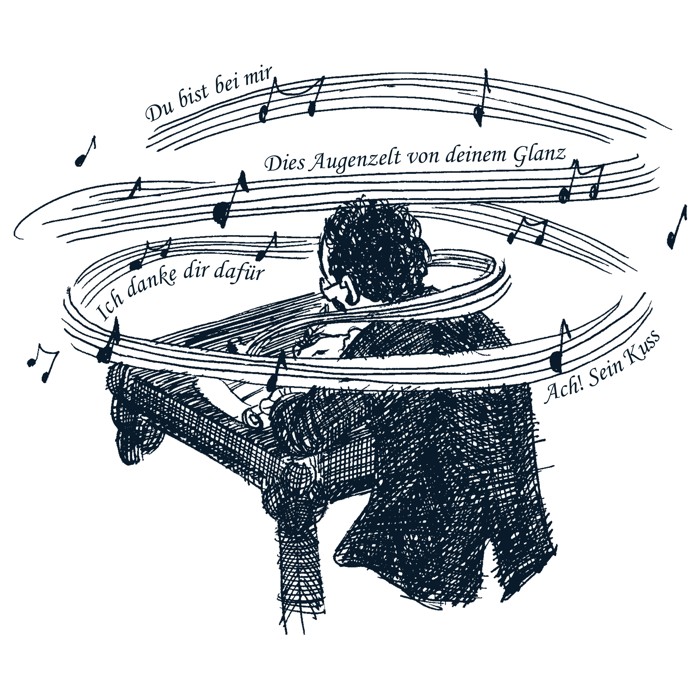





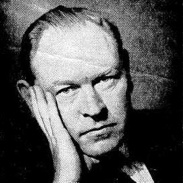

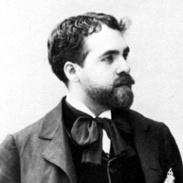








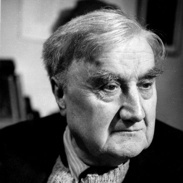








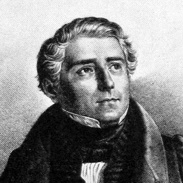





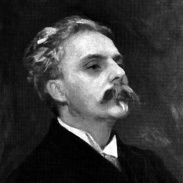


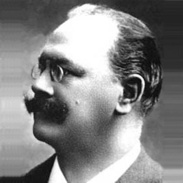

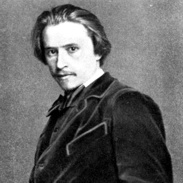


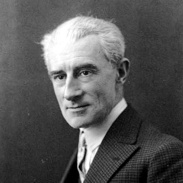

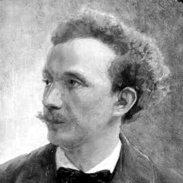
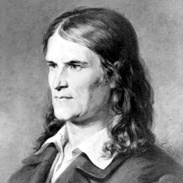


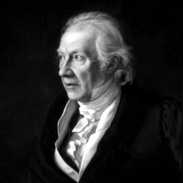






Comments powered by CComment